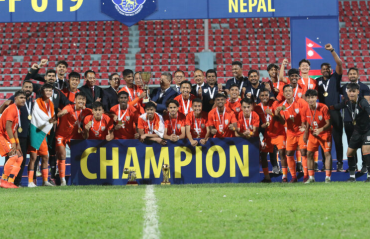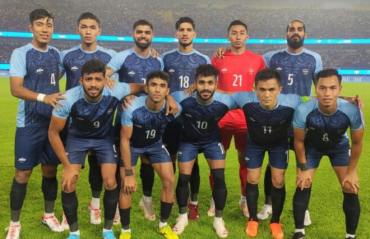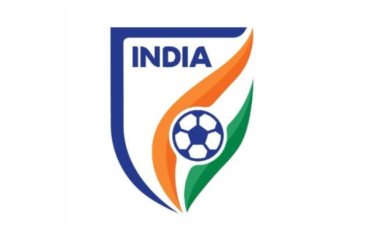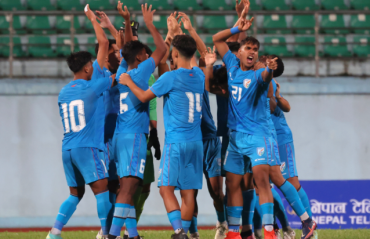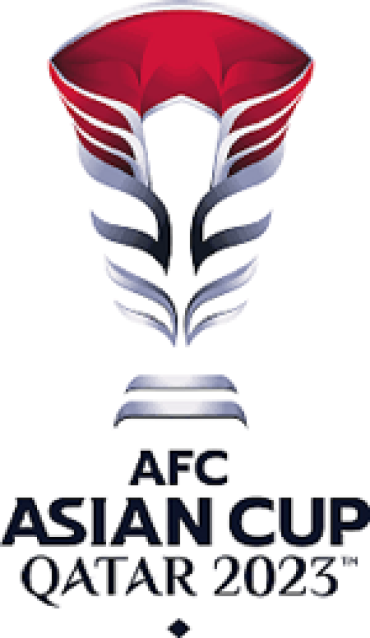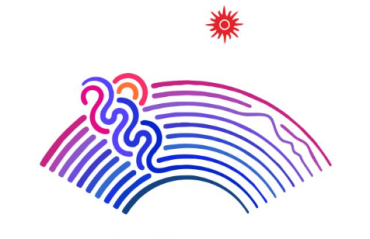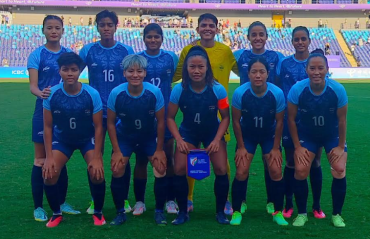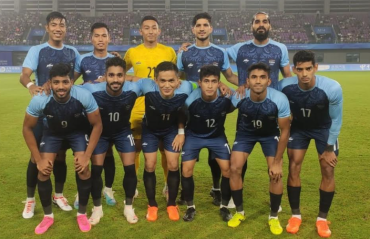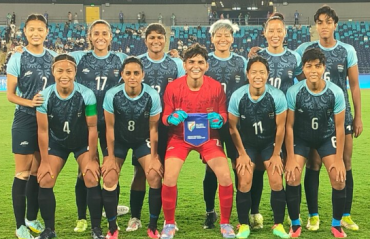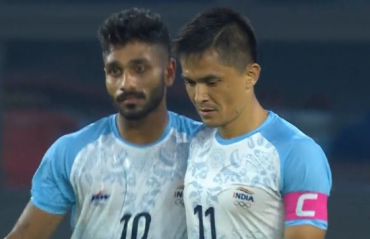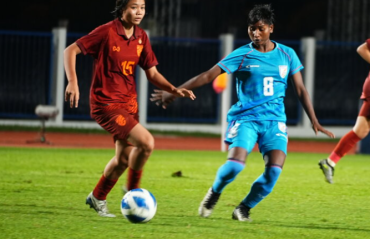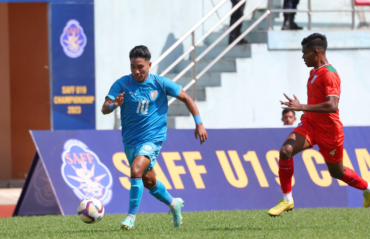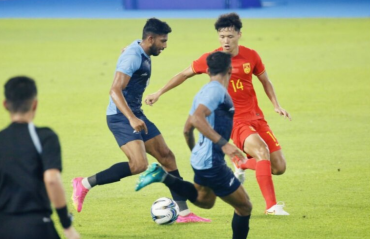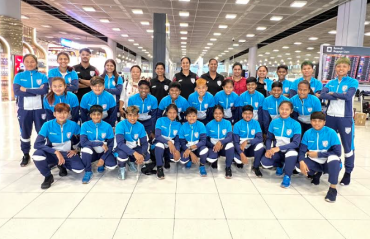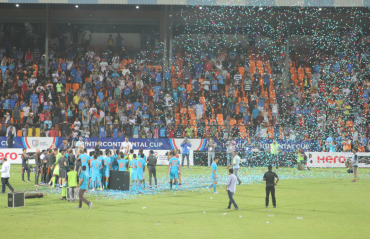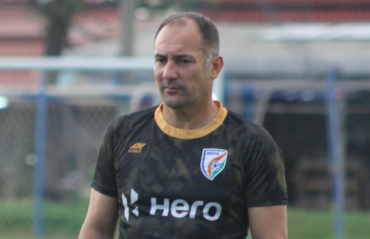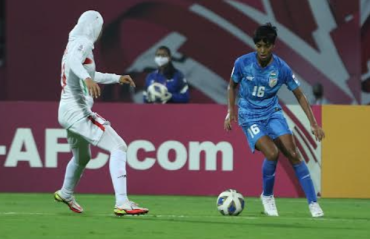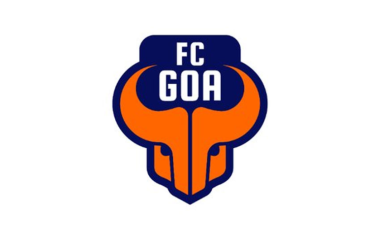Finally, something that the AIFF can Bragg about
THE MUCH-NEEDED overhaul of the nearly non-existent scouting system in India seems to be on the right track with renowned football scout and managing director of The Scouting Network, Derek Bragg, being brought in to initiate India's scouts into the finer tricks of the trade.
Bragg, who has spent the majority of his 58-odd years engulfed in the game. As a player, he made more than 300 appearances as goalkeeper for Bundesliga side Hertha Berlin. But it was clear from early on that his relationship with the sport was going to be much more diverse.
His sharp analytical mind and a knack for reading players obvious from his playing days, he moved on to other roles after he hung up his boots. In 1997 he joined the then Conference side Cheltenham Town as a goalkeeping coach and chief scout.
Always eager to go beyond his traditional roles, he earned a unique achievement when he came on as a substitute for the club on 7th April 1999 in an Endsleigh Trophy semi-final to become the oldest player ever to have represented Cheltenham.
It was during his tenure at Cheltenham that he noticed the inherent flaws in the existing scouting system.
Unable to afford expensive players sold by high-charging international agents, many clubs, especially those in the lower leagues, depended a lot on scouts for finding quality players for relatively less price. But the club-employed scouts were hardly ever fully up to the job, treating the role like a means to get some extra cash on the side, submitting unsatisfactory, half baked reports and often not even sitting through matches they were assigned to.
Even though scouts are credited with discovering many players who went on to be successful at the highest levels, their relative ineffectiveness meant that whenever a club went into financial hardships, scouts were the first to get the sack. In fact, it had become almost a common practice for clubs to employ no scouts at all, and the managers instead traveling to games to spot talent.
He did well as a club-employed scout; he was the one who discovered the Irish defender Michael Duff who after a successful spell at Cheltenham went on to get a taste of Premier League football at Burnley where he is still playing.
The problem with scouting, as Bragg said in a 2009 interview with The Guardian, was that it wasn't treated as a skill of its own. Even top European clubs provided no training for scouts, and there was no formal qualification system in place. In order for scouting to be effective the standard of performance had to be raised. With this aim, he established The Scouting Network in 2005, a scouting and consultancy service with a revolutionary take on the business.
Instead of being tied to any club, they employed dozens of part-time scouts and collected data en masse on all levels and sold them for a fee to anyone who wanted it. In no time, The Scouting Network was collecting data from 35 matches every weekend in England and Scotland alone. They even tied up with agencies from around the world to extend their reach to hitherto unexplored regions like Asia and Africa.
It came as a boon especially to cash-strapped lower league clubs. Instead of hiring scouts of their own they could now access any data on request for a fraction of the cost. And Bragg made sure they got value for their money. The reports of The Scouting Network were in-depth like none other; from Premier League level to the regional conferences.
There are certain features a scout's report must have that distinguishes it from others, said Bragg to Sports.Co.Uk.
“Managers look for structured assessments of individuals not just match reports.”
He trained the scouts he hired to look out for details that an average analyst might miss. Everything about a player; his speed, skill, age, size, training background… all must be taken into account, but even that does not make a great scouting report. It must also include the intangibles; like a player's body language, communication with other players, temperament and mental strength.
“Mental strength is absolutely vital in the make-up of a player,” he said. “A player needs to be able to keep his head when his team go a goal down in front of 50,000 people, especially if he makes an individual error. Look at the lad’s body language… poor mental strength equals inconsistency.”
His vision soon bore fruit as his client list grew exponentially, reaching more than 60 clubs all over the world from all divisions, and even the big clubs were taking notice of his work now. There were, obviously, many detractors that he gained. Many saw the work he was doing as immoral and a threat to traditional scouting. A newspaper in 2006 even called him a “spy for hire”. But the impact he had on the trade went beyond scouting: it had the potential of eliminating the agent. No longer did the clubs had to bear with the player agents with their highlight DVDs that only glorified the player in question; they could now access detailed, impartial reports that listed the player's strengths as well as weaknesses.
With such far-reaching possibilities, Bragg faced an uphill battle all the way to establish himself in the business, but his work spoke for itself. Many of the players in The Scouting Network's “recommended list” went on to play for big clubs at the topmost level, including Sanshuke Nakamura and John Obi Mikel. Players like Mesut Ozil and Alexis Sanchez, both of whom made lucrative moves to Arsenal in 2013 and 2014, had already been handpicked by Bragg for BBC in 2009 among his “Top 6 Players to Watch Out For in World Cup 2010”.
But at the top of his resume lies two achievements. The first is helping out then Portugal manager Carlos Queiros with an extensive dossier on World Cup 2010 play-off opponents Bosnia-Herzegovina. The second was his short spell as the Chief Scout for Football League side Derby County in 2014. Meanwhile Bragg has expanded his network and gone on to give lectures and train scouts around the world. Notably, he delivered a lecture at the Wyscout Forum held in Emirates Stadium in December 2012, titled “How to Set Up a Scouting Department”, with representatives of some of the biggest European clubs in attendance.
But his biggest challenge, as he comes to India to train our football scouts, will be to impress upon clubs and association officials the full extent of a scout's potentials. India is a country where football scouts are rare, untrained and hardly get duly rewarded for their work. Few clubs have their own scouts, and those that engage in freelance scouting have to keep a day job. Having no formal training they rely on their own instincts to assess a player, often within a very short time, something Bragg has repeatedly warned against. Never judge a player from one game, and never get fooled by the scoreline, he says. A scout must evaluate a player through constant, long term monitoring of every aspect of his game.
If he is able to introduce these ideals to Indian scouts it will certainly change the very fabric of the scouting business in this country. Whether it will bring in results before the 2017 U-17 World Cup is anyone's guess, but in the long term, they are bound to make a difference. India coach Stephen Constantine certainly seems to think so.
“When you watch a football game with Derek it's an education in itself,” he said at a press meet.
It's safe to say that AIFF's newly-appointed Director of Scouting Abhishek Yadav and his colleagues are indeed in for a few lessons to remember.









